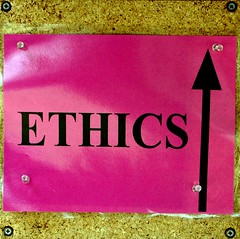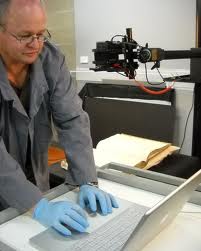Digitisation dilemmas July 5, 2011 4 Comments
There are substantial benefits to be gained by digitising paper records. As a result, the number of organisations undertaking digitisation has increased dramatically in recent years.
However, if you want to introduce digitisation projects or programs you need to be aware that there are also a variety of risks. Being aware of these risks can help your organisation to built mitigation measures into program/project planning and management. Read the rest of this entry »
How Malcolm Gladwell can help you to develop better recordkeeping systems July 1, 2011 No Comments
I’ve just finished Outliers, a brilliant book by one of Cassie and my favourite authors, Malcolm Gladwell. (He also wrote The Tipping Point and Blink).
Outliers, it says on the cover, is ‘the story of success’. Through the book Gladwell tells the stories of many ‘outliers’, people like Bill Gates, The Beatles and lots of others, each of whom has been incredibly successful in their chosen field. Using detailed research, Gladwell teases out the stories behind their success. And the results are absolutely fascinating.
Gladwell’s central thesis is that true genius is not enough. You can be brilliant but this is no guarantee of success. He uses dozens and dozens of absorbing case studies to identify the critical factors that are required to support genius and enable it to flourish.
Now it’s just the way that my mind works, and full apologies to my hero Mr Gladwell, but reading his wonderful book made me think, ‘There are lessons we could apply to records management here!’ If you are in NSW government you are possibly very aware that at the moment, we at State Records are really concerned with the development of strong, capable digital recordkeeping systems in government. The compliance requirements for our Standard on digital recordkeeping are coming into effect and we are really trying to promote different ways and means of building good recordkeeping capacities into the diverse digital systems that government is using to transact its business.
So, courtesy of Malcolm Gladwell, here are some tips that I think we as recordkeeping professionals can take from his study of success to help us develop robust and successful recordkeeping systems. Read the rest of this entry »
Defining high risk records June 18, 2011 No Comments
In a few days time, on 30 June, it will become a mandatory requirement under the Standard on digital recordkeeping (see Resources section above) that each government organisation must ‘define the digital State records that it will make and keep’ for all of its high risk business processes (requirement 1.1).
Our recent government-wide compliance survey asked how organisations were going with meeting this and other requirements from the standard. 80% of agencies from across all sectors of government reported that they had not yet determined what records are needed to support their high risk business processes. This is potentially a very large problem. If organisations don’t know what information they need to make and keep in support of their high risk operations, they are jeopardising their current operations and also impairing their ability to maximise and realise the full benefit of their information.
So how do organisations define which digital records are needed to support high risk processes? Here are a range of options to get you started. Read the rest of this entry »
Recordkeeping and the cloud June 9, 2011 1 Comment

![]() photo credit: shaire productions
photo credit: shaire productions
At Future Proof, the digital recordkeeping question that we are most commonly asked at the moment relates to the cloud and recordkeeping. So, on International Archivists Day and @AskArchivists Day, we thought we’d blog about all the cloud-related advice available on our website in case you were interested but too shy to ask! Read the rest of this entry »
The ethics of access June 8, 2011 2 Comments

American archivist Elena S Danielson has written a really interesting book called The Ethical Archivist (see description at http://goo.gl/xNRgU). In amongst a range of other fascinating ethical discussions, Danielson asks some probing questions about archival ethics in the digital age.
Danielson says that a key collective aim of archival institutions is to ‘cultivate trusted archives based on intellectual integrity and to prevent the corruption of historical resources’ [298]. But she argues that these objectives are potentially much harder to achieve in the digital world.
![]() photo credit: justinbaeder
photo credit: justinbaeder
Evolutionary taxonomy, records management and fish May 18, 2011 2 Comments
Carol Kaesuk Yoon has written a brilliant book called Naming Nature: The Clash Between Instinct and Science. It’s about scientific taxonomy – the identification and classification of species – but it has so much to say about the theory and process of classification that I think it raises a lot of fascinating issues for our profession as well.
U.S. Archivist worried about White House Tweets: Recordkeeping in the social media grey zone May 6, 2011 No Comments
At a recent House Oversight and Government Reform Committee hearing in Washington DC, Archivist of the United States, David Ferriero raised some concerns about the adequacy of the current archives legislation and whether it has kept pace with the way the US Government does business using technology. In particular, Ferriero pointed to the use of cloud based social media applications and personal devices such as iPads by White House staff for generating and keeping content that may relate to official business. 
Ferriero told the hearing that official communications sent from a presidential employee’s personal device, using personal accounts, must be preserved under the law, but that it is up to the individual staff member to determine what is official and take steps to capture this content into an official system. Asked whether he was comfortable with a voluntary system, he replied, “Any time there is human intervention, then I’m not comfortable.”
Enterprise architecture for records managers April 20, 2011 No Comments
Enterprise architects and records managers have much to gain by working together. Records managers can contribute their expert knowledge of their organisation’s ‘business’ and its ‘data’ assets. By working with enterprise architects, records managers can improve the visibility of their programs, receive assistance in strategic tasks such as the development of business cases, and, most importantly, can ensure that records management requirements are embedded within their organisation’s enterprise architecture.
State Records recently published a new Recordkeeping In Brief RIB 59 – An introduction to enterprise architecture for records managers. This short guide introduces enterprise architecture and describes the benefits of collaborating with enterprise architects.
If you’ve worked in partnership with enterprise architects, we’d love to hear about it, please share your experiences as comments on this post.
Here today… April 19, 2011 No Comments
Google is closing its Google Videos site and binning your old movies. The search giant, which also owns YouTube, won’t keep the videos that have been uploaded to the site.
– Rich Trenholm ‘Google Videos to nix your flix’ CNET News. Accessed April 18, 2011 8:32 AM PDT http://news.cnet.com/8301-17938_105-20054913-1.html#ixzz1JvrKCkks
Perhaps we should actually stop to ask Google and their peers whether they are indeed aware of the fact that the future of digital preservation lies in their hands and the responsibilities which comes with it and whether this is a role they are happy to fulfil. For perhaps just as we are in danger of sleepwalking our way into a situation where we have let this responsibility slip through our fingers, so they might be equally guilty of unwittingly finding it has landed in theirs.
– Steve Bailey ‘Is the Cloud aware that it has ‘the future of digital archiving in its hands’?, Records management futurewatch blog, 25 August 2010. Accessed 18 April 2011 http://rmfuturewatch.blogspot.com/search/label/cloud%20computing Read the rest of this entry »
EDRMS business rules April 13, 2011 No Comments
Our friend Stephen Bedford at the Department of Finance and Services very kindly agreed to share a document he has been working in that looks at some of the factors that need to be considered when you are working out how best to implement an EDRMS – in particular, relating to the tricky issue of determining the role of shared drive folders (see our post from a few weeks back, ‘Sharing the drive‘). In the introduction to the document, Stephen explains:
Before an agency can decide on business rules, it has to decide how it intends to use EDRMS once it is installed.
3 models have been described, with a description of how they would work, and benefits and risks of each.
Stephen is happy for his work to be used by others who are developing their own EDRMS implementation strategies – with acknowledgment, please!
EDRMS-business-rules (PDF, 112 kb)
If you have any documents or other work relating to EDRMS implementation, we’d love to hear about it, or indeed share it on the blog. Comment below or contact us at govrk@records.nsw.gov.au






